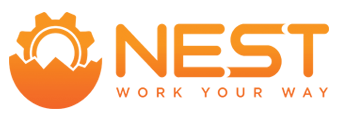Why the Gig Economy Isn’t Going Away
Most presidential elections come with rhetoric about jobs and the economy. And while the majority of jobs that come with an improved economy may still look like a traditional 40-hour employment agreement, freelance work is on the rise. And it’s not going anywhere. Whether you are a self-employed programmer, part-time graphic designer, or a member of an app development team, you will need a community of like-minded professionals seeking the same professional satisfaction.
The Workers
The up-and-coming workforce is against the idea of a traditional job. Millennials, as a group, are far more interested in life experiences like camping, travel, and leisure than they about having a house, a car, and a high credit line. Corporations are finding that freelancers, while expensive on the hourly end, are more motivated and efficient that full-time employees.
The Benefits
Health insurance was one of the driving forces for finding and keeping a traditional job. And while it’s likely that health insurance will change over the next four years, universal healthcare is likely here to stay. And if you are in a liberal state like California or Massachusetts, changes in federal healthcare laws could be offset by changes in state laws. So if you can get health insurance on your own, a traditional job comes with more restrictions than benefits.
The Workplace
As the US moves towards a knowledge-based economy (as compared to a manufacturing economy), the average worker won’t need more than a cell phone and a laptop to be highly effective. Corporations are seeing the cost-cutting benefits that come with workers who pay for their own workplace (and health insurance).
If you’ve ever worked from home for long stretches of time, then you know that the isolation and quiet can be unsettling. And if you’ve ever worked from a coffee shop, you know the sound of blenders and screaming children is less than professional. Coworking spaces are a key component in the gig economy. Collective workplaces offer the human interaction we need to feel connected day-in and day-out. Plus they offer a brand of professional flexibility found nowhere else.



